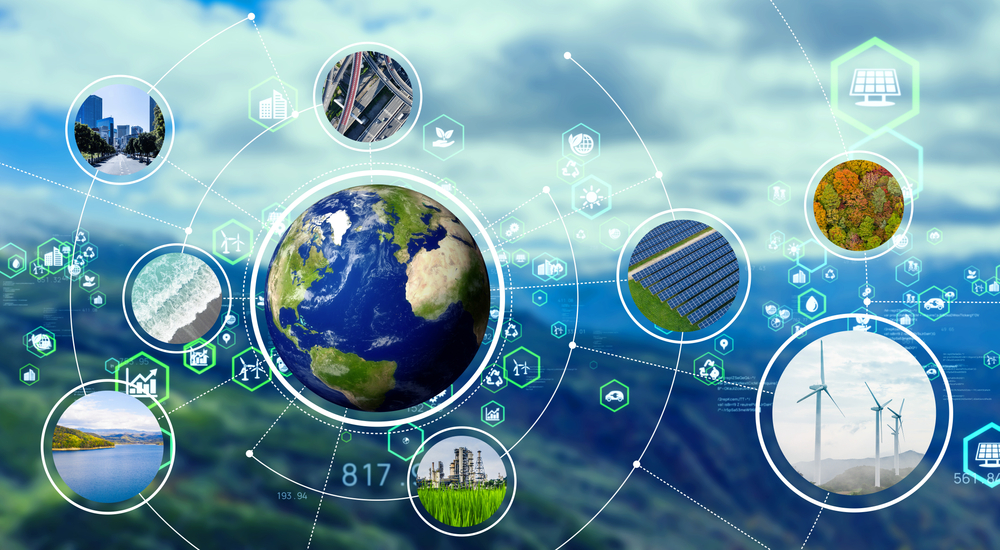
07 Jul Dealing with Changes in the Business Climate
Climate change and climate policy have been very much in the news recently. They were a focus of Prime Minister Morrison’s recent visit to the UK for the G7 in Cornwall; while back home, disagreements within the Coalition over how (or even whether) to approach the question of getting to carbon neutrality were widely seen as responsible for the change in leadership of the National Party.
For the business relationship between Australia and Japan, too, these issues are poised to take centre stage. Japan’s commitment to carbon neutrality by 2050, and the oft-stated commitment by Australia’s Prime Minister to achieving that target “as soon as possible, preferably by 2050” have stark implications for our current patterns of trade.
In 2019-20, the most recent full year for which DFAT has published data, Liquefied Natural Gas (LNG) and coal made up 63 per cent of Australia’s exports to Japan, despite a fall in the value of coal exports in that year of around $5 billion by comparison with the previous year.1

Putting that in perspective, the value of these exports was almost precisely identical to Australia’s trade surplus with Japan; indeed, receipts from LNG alone would have paid for all Australia’s imports from Japan – our third largest import source. Moreover, that trade surplus was only just shy of Australia’s total trade (exports plus imports) with its next largest trading partner, the Republic of Korea2, and more than twice its total trade with India.

So a shift to carbon neutrality by Japan, irrespective of Australian domestic policy on climate issues, will have profound implications for the Australian economy, and for the bilateral relationship – particularly as other key trading partners have made similar commitments, and at a time when other winds are buffeting the business environment in the region.
It is not surprising, then, that climate action was a key part of the conversation when Prime Minister Morrison met Japanese Prime Minister Yoshihide Suga at the G7 in Cornwall. The two Prime Ministers took the opportunity to unveil a new Japan-Australia Partnership on Decarbonisation through Technology.
Their statement emphasised:
- Australia’s and Japan’s common commitment to ambitious action to achieve Paris Agreement goals and determination to collaborate on efforts to achieve decarbonisation and a net zero emissions future;
- That a technology-led response is critical to reducing greenhouse gas emissions while also ensuring economic growth and job creation;
- Their shared ambition to accelerate the development and commercialisation of low and zero emissions technologies “as achieving cost parity with high emitting alternatives is vital for decarbonisation efforts”;
- Their determination to make technologies that will make decarbonisation strategies globally scalable and commercially viable, through collaboration on technology research and development;
- Their desire to assist other countries in the region, particularly in ASEAN, in decarbonisation efforts through technology; and
- Their willingness to develop and fund joint initiatives to contribute to the development and deployment of low-emissions technologies.
From a business perspective, the joint statement is a welcome indication of commitment to support businesses that are working to bring about the clean energy transition in a manner that maximises opportunity – albeit it is relatively silent on the systemic reforms needed to create the certainty that will be the best driver of investment, particularly in areas such as hydrogen, where technological development is required both on the supply and demand sides to make the transition commercially viable. It is particularly encouraging that the first instinct of both countries has been to look to each other.
It is also the case that the statement, and others referenced by it, are built on a substantial body of domestic work in each country – for example, Australia’s 2020 Technology Investment Roadmap and 2019 National Hydrogen Strategy; and Japan’s recent Green Growth Strategy Through Achieving Carbon Neutrality By 2050 published on Christmas Day 2020 and recently made available on METI’s website in English. The signs are that between Australia and Japan at least, business is picking up the gauntlet, with increasingly frequent announcements in the climate space – from Sojitz and ENEOS’s recent announcement of construction of a 204 MW solar facility in Queensland to AJBCC member Norinchukin’s $637.5 million backing of a scheme to provide discounted finance for green home building, in the past month alone.
All of this points to some vital conclusions:
- The implications for Australia’s economy of the commitment to carbon neutrality by Japan and other key trading partners are very large and need to be managed actively and by seizing the economic opportunity offered by new technological developments. Business is already leading the way.
- As we have been for more than sixty years, Australia and Japan will be enormously important to each other in this new era, with our resource and technological complementarities underpinned by our shared values and approach to international commerce; and
- To manage the challenges and grasp the opportunities, and to do so in ways that will preserve and even enhance our important relationship, it is vital that we deepen dialogue and work even more closely together, to understand each other’s strengths and approaches as new areas of business emerge.
The first plenary session of the AJBCC’s Annual Joint Business Conference with the JABCC in Adelaide on 5 October “Maintaining Energy in the Australia-Japan Business Relationship” will be the place to be to ensure you’re part of the conversation. Don’t miss it!
1 DFAT, Japan Fact Sheet, https://www.dfat.gov.au/sites/default/files/japn-cef.pdf
2 DFAT, Republic of Korea Fact Sheet https://www.dfat.gov.au/sites/default/files/rkor-cef.pdf



